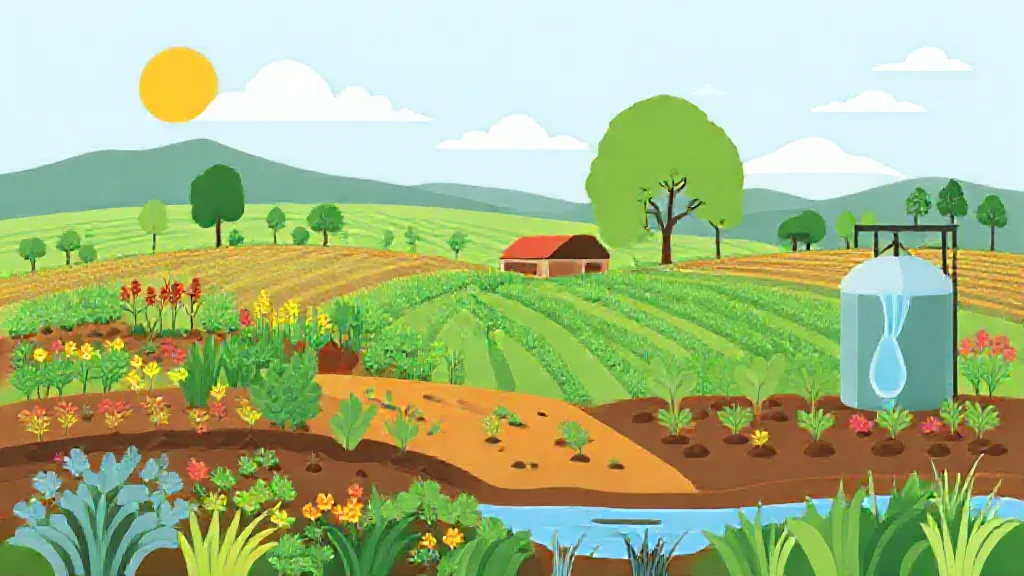Sustainable farming, also known as sustainable agriculture, refers to practices that meet current food and textile needs without compromising the ability of future generations to meet their needs. This approach emphasizes the importance of environmental health, economic profitability, and social equity. To achieve these goals, farmers and agricultural practitioners are encouraged to adopt best practices that enhance sustainability while maintaining productivity.
Understanding Soil Health
One of the cornerstones of sustainable farming is maintaining and improving soil health. Healthy soil is vital for crop production as it provides essential nutrients, supports plant growth, and contributes to water retention. Practices such as crop rotation, cover cropping, and reduced tillage are effective methods for enhancing soil fertility and structure.
Crop rotation helps break pest cycles and improves biodiversity, while cover crops protect the soil from erosion and enhance organic matter content. Reduced tillage minimizes soil disturbance, preserving its structure and microbial life.
Water Conservation Techniques
Water scarcity is a pressing global issue, making efficient water use a critical aspect of sustainable farming.
Techniques such as drip irrigation, rainwater harvesting, and the use of drought-resistant crop varieties can significantly reduce water consumption. Drip irrigation delivers water directly to the plant roots, minimizing evaporation and runoff. Rainwater harvesting involves collecting and storing rainwater for irrigation, reducing dependence on groundwater.
Additionally, selecting crop varieties that require less water can help farmers adapt to changing climate conditions.
Integrated Pest Management (IPM)
Integrated Pest Management (IPM) is an ecological approach to pest control that combines biological, cultural, physical, and chemical tools to manage pests sustainably. By using IPM, farmers can reduce reliance on chemical pesticides, which can harm beneficial organisms and lead to pesticide resistance.
Strategies within IPM include monitoring pest populations, encouraging natural predators, and using pheromone traps. This holistic approach not only protects crops but also promotes a balanced ecosystem.
Promoting Biodiversity on Farms
Biodiversity is essential for sustainable agriculture as it enhances ecosystem resilience and productivity.
Farmers can promote biodiversity by planting a variety of crops, integrating livestock and crop production, and preserving natural habitats within agricultural landscapes. Diverse cropping systems can improve pest control, enhance pollination, and increase soil health. Moreover, maintaining hedgerows and buffer strips can provide habitats for wildlife, contributing to overall ecosystem health.
Utilizing Organic Farming Practices
Organic farming is a sustainable practice that avoids synthetic fertilizers and pesticides, focusing instead on natural inputs and processes. Organic methods include composting, green manures, and biological pest control. These practices not only improve soil health but also reduce environmental pollution and promote biodiversity.
The organic certification process encourages farmers to adopt sustainable practices, making organic products increasingly popular among consumers who prioritize environmental responsibility.
Community Supported Agriculture (CSA) Models
Community Supported Agriculture (CSA) is a model that connects farmers directly with consumers, fostering a sense of community and promoting local food systems. In a CSA, consumers purchase shares of the farm's harvest in advance, providing farmers with upfront capital and reducing market risks.
This model encourages sustainable practices as consumers become more invested in the farming process and its environmental impact. Additionally, CSAs often prioritize seasonal and organic produce, further supporting sustainable agriculture.
Educating and Engaging Farmers
Education and engagement are crucial for the successful implementation of sustainable farming practices.
Agricultural extension services, workshops, and online resources can provide farmers with the knowledge and tools necessary to adopt sustainable techniques. Collaborations between universities, government agencies, and non-profit organizations can facilitate the sharing of best practices and innovations. By fostering a culture of continuous learning, farmers can adapt to new challenges and improve their sustainability efforts.
The Role of Policy in Sustainable Farming
Finally, supportive policies play a vital role in promoting sustainable farming practices. Governments can incentivize sustainable agriculture through subsidies, grants, and technical assistance programs. Policies that encourage conservation practices, protect natural resources, and support local food systems can create an environment conducive to sustainable farming.
Engaging stakeholders, including farmers, consumers, and environmental organizations, is essential for developing effective policies that address the complexities of agricultural sustainability.
In conclusion, sustainable farming practices are essential for ensuring food security while protecting the environment. By focusing on soil health, water conservation, pest management, biodiversity, organic methods, community engagement, education, and supportive policies, farmers can contribute to a more sustainable future for agriculture.
